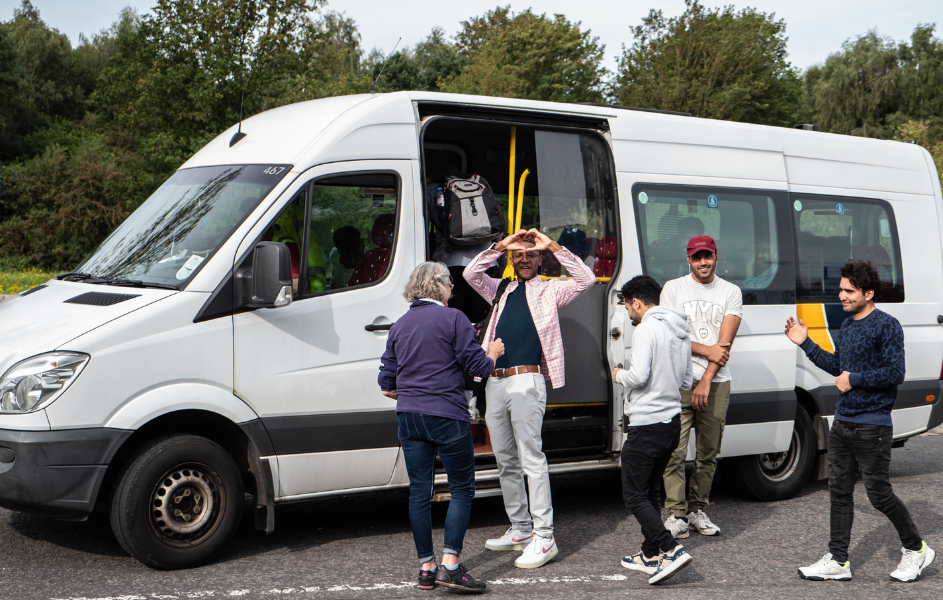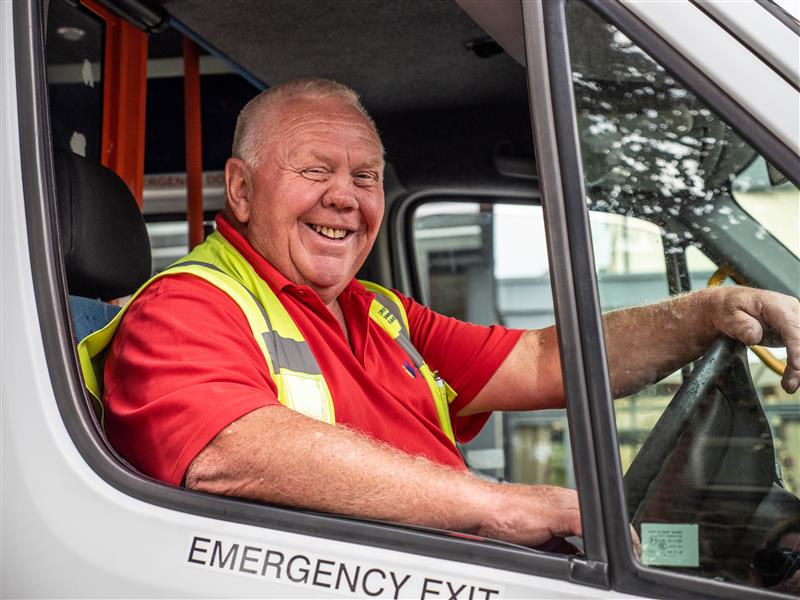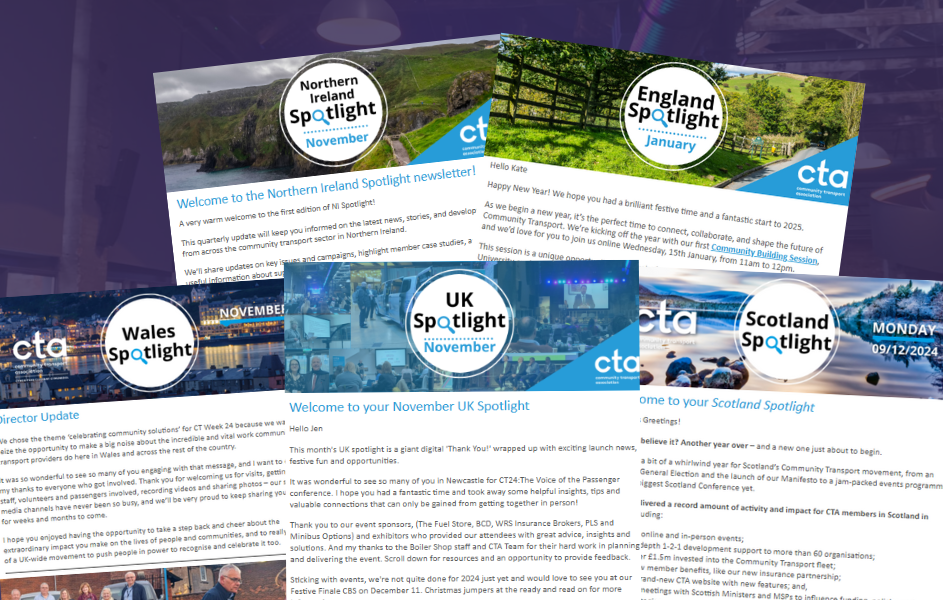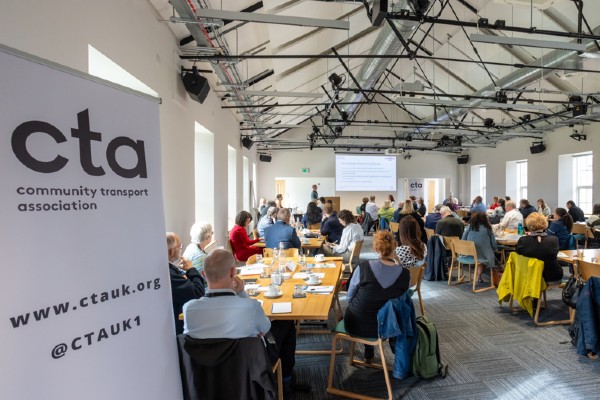Welcome to the Community Transport Association
Every year, in all parts of the UK, thousands of community transport staff and volunteers support millions of people to stay independent, participate in their communities and access vital public services and employment.
Community transport is about providing flexible and accessible community-led solutions in response to unmet local transport needs. The Community Transport Association (CTA) leads a thriving community transport movement in the UK. CTA is also the national administrator of MiDAS - the Minibus Driver Awareness Scheme, which has been the gold standard for enhancing the safety and care of passengers for over 30 years.
Our Mission
To lead a thriving and sustainable community transport movement in the UK.
Our Vision
We believe everyone in their community should have access to transport that meets their needs.
Our Values
• Leadership: We provide leadership by acting as a unified voice for our members, representing their interests and concerns to government bodies, and offering resources and training. CTA fosters collaboration, promotes standards of excellence, and empowers our members to champion transport solutions in their local communities.
• Integrity: We are honest and transparent in our decision-making processes, and are accountable to our members, funders, and key stakeholders. CTA is committed to upholding the standard we set for the CT sector and continue to identify ways of improving our culture, operations, and services to better support the sector.
• Equity: We actively promote an inclusive culture of equality, diversity and respect through advocacy, education, collaboration and other initiatives aimed at ensuring that transport services are accessible and fair for all members of the community.
• Excellence: At CTA, we are committed to maintaining high standards in our service delivery and we advocate for members to champion these standards, including performance metrics, regular maintenance of vehicles, safety protocols for drivers, passengers and road users, and compliance with regulatory frameworks. In doing so, we recognise and celebrate the transformative power of working together to co-develop transport solutions.
• Environmental sustainability: We understand the environmental impacts of our work and that of our members, and we are committed to minimising these for the long-term good of the communities we serve.
Our Work Is Underpinned By 4 Pillars
As a member-led organisation, we operate with a strong focus on engaging and involving our member organisations and individuals in our decision-making processes and activities. In addition, we identify and seize opportunities to champion our members’ vital and essential work to strengthen the community transport sector.
We provide comprehensive advice and guidance to people and organisations delivering community transport across the UK. Our advice & support team provides up-to-date information on regulations and policies, resources and toolkits, funding support, and best practices so that our members can thrive and serve their communities effectively.
We contribute to the formation of public policy that affects our members and the CT sector and show how better outcomes can be achieved for people and communities with accessible and inclusive transport. We play a multifaceted role in influencing policy and research that impacts our members. By actively engaging with government bodies in England, Wales, Scotland and Northern Ireland, conducting research, and advocating for the interests of our members, CTA helps to shape policies and regulations that support community-focused transport services.
We manage a national programme of quality-assured education and training for the CT sector. CTA offers training, workshops and webinars to help members enhance their skills and knowledge on transport services, regulatory frameworks, safety and customer service.







